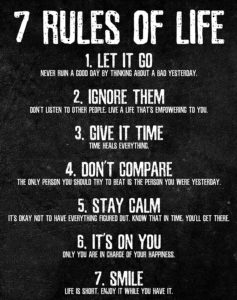
Real Solutions to Boredom
So, there’s regular boredom. Kids waiting in line, or into the 7th week of summer kind of bored that often turns to mischief. And adults struggle with that, too, although now our phones can usually hide the feeling of boredom from us! And, in general, kids and adults seem to think that the solution to boredom is finding more stimulation… and it’s most definitely not!
And then there’s the deep, soul-boredom the Existentialists call ennui. Meaninglessness, purposelessness, a barrier to full engagement with the present… Erich Fromm even suggests that boredom might be the single most important factor in aggressive behavior because of the search for stimulation to reduce the unpleasant bored feeling.
Will it surprise you if I suggest that the solutions to the fleeting, childlike boredom and the bone-deep sense of listless purposelessness are actually THE SAME? Here you go:
- Meaning-making: Emotions are often signposts that there is an action sequence that’s needed (e.g., sadness -> resource/support seeking; anger: restitution of justice). Boredom may be a signpost that the action sequence needed is meaning making.
- Introspection: Is boredom your primary emotion, or is it covering up something that might be unpleasant? Opening up and looking inward when feeling bored may unveil some very important material, if you’re willing to engage with it!
- Imagination: Even if boredom is primary, and it’s a reasonable emotional reaction to a highly stagnant outer-environment, your inner environment is never stagnant! Boredom can give you a nudge toward going inside to your imagination, an eternal spring!
- Mindful awareness: Is the outer-environment actually stagnant and boring? Or might there be a whole world being missed because our focus is narrow? Consider bringing a mindful awareness to what’s going on around you, noticing things you might not normally notice.
- Body/self awareness: Failing that (plundering the outer environment for its hitherto unnoticed treasures), tuning in mindfulness to the body is always an option, and one that often bears fruit in the form of pleasant feelings of being calm and centered, or interesting information about the messages the body is carrying.
- Body engagement: A second source of boredom-management that your body can give you is movement. Even a gentle walk, if available, can both energize the body (and thus help focus the mind) and may bring you into contact with other parts of the environment to engage with.
- Connection: Boredom is much more common when we’re lonely – in fact, it might actually be one of the primary differences between being lonely and being alone! Boredom may be a request for the action sequence of connecting with others!
- Rest: Contrary to popular conception (and outside the context of an apathetic depression), boredom may even be sending the message that you haven’t gotten enough rest! If you’re tired, all of the focus and energy required to engage meaningfully (and interestingly!) in the outer or inner world might just not be available! Take a nap!
- Stoic Acceptance: Allowing the bored feeling to exist while you choose to carry on with your needed life obligations is a kind of gentle discipline that can make the dreary moments of life more tolerable!
Comment below: What other healthy and effective alternatives can you think of for managing boredom, without giving in to the often-problematic strategy of stimulation-seeking? How have your clients struggled with boredom and what has worked for them?

